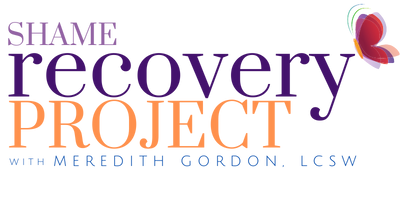Narcissism is easy to misunderstand. Many people believe that the narcissist is deeply in love with himself or herself—the true self, that is. If the narcissist is in love with anything, it’s the image of himself. The narcissist is in love with the image of the self he or she has created. That image is an illusion (hence the term “false self”). The image, worn like a mask, might have even been stolen from…you.
Images take a lot of crafting, and require a ton of upkeep. Since the image is external, it requires the “help” of others. Kids don’t typically understand this, particularly when it comes to their own parents. When people talk about narcissists feeding off of other people (in their quest for narcissistic supply), this is the kind of “help” we are talking about. Again, kids don’t “know” this on a conscious level. They may know they feel bad about how their parent views them, but they don’t understand why they feel that way. In fact, the same goes for adult children. Narcissists are parasites; they feed off a host (whomever that may be, depending on the moment). Ironically, they have the “host” believing that they, in fact, are feeding off of/using the narcissist!
Tricky. (Then again, with narcissists, life is always tricky, complicated and not what it seems.)
If you are in a relationship with someone afflicted with narcissism (I am not talking about what is often called healthy narcissism or the ability to take care of oneself) you just never know what you’re going to get. The outside is always changing. And the outside is everything. Being a caregiver to a narcissist can be hellish because, to borrow and interpret freely from Gertrude Stein, “There is no there, there.” While Stein was referring to place, here I am referring to depth, to a sense of true self. It’s missing. At best, extremely underdeveloped. The goal for the narcissist is to not let this deficiency show.
Not showing it can take on an array of themes. Do any of these sound familiar:
- Blaming someone else for causing their discomfort
- Accusing another person of exactly what the narcissist is doing…being cold, being selfish, manipulative, and so on
- Comparing you with another sibling or other person
- Withholding or lying about key information about their care so that it puts you, the caregiver, on the hot seat with the doctor or others
The caregiver who is not also a narcissist is typically caught completely off guard and left confused and wounded. The narcissist (parent) may withhold communication, love, attention, or may go on the offensive by publicly (inside or outside of the family) blaming, lying and then acting like he or she does not understand why you are behaving this way!
This is called projecting. (Think of a motion picture projector, how it projects an image out there, on the wall.) For the narcissist, other people are the walls (in more ways than one!) and they are the projector. Bad feelings are relegated to the other person (“Why are you always in a foul mood?” “Why do you always have to have your way?” “You are so sensitive but you never hear me.”)
Sound familiar?
While there are many levels of narcissism, when you are the object of a narcissist’s hatred and anger, it can feel horrible. When you are raised by a narcissist, you may have learned to “be less” so the parent can “be more.” Many of these patterns can play out in your adult life, and will come to the fore in a caregiving relationship. So, what can you do to protect yourself? Some ideas:
- Remember, the narcissist projects. Understand that the patterns of communication are complex, and never actually about what they appear to be about.
- If you were raised by a narcissist or are under the influence of one, understand that you will need to relearn how to be in such a “relationship” (I use the word relationship loosely) and learn how to take care of yourself.
- Grieve the loss, not only of the relationship you thought you had with the person or the parent, but also of the relationship with yourself that you neglected. The good news is, you can repair the relationship with yourself.
- Be open to the concept. Notice the signs.
- Hold off on confronting the narcissist until you understand why you’re doing it, and what you expect from the confrontation. You may need to confront to set a limit; or you may chose to wait. The more aware you become about narcissism, the better able you will be to make an informed decision on such things.
- Read (and reread) books like Trapped in the Mirror, by Elan Golumb–Adult Children of Narcissists in Their Struggle for Self . With such chapter titles as “They Make You Conform to Their Will, Even in Your Thinking” and “No Right to Live if You Cannot Love: How a Narcissist Put His Inability to Love onto his Child” the books reaches deeply and explains thoroughly how narcissists operate, and the effects on the child, even as an adult. In one chapter she asks: “How do you confront the negative inner parent when it attacks you? How do you get rid of it, refute its hateful message, and make its influence less destructive?” and explains how. This stunning book is a must read—and it will be useful not only for the child of a narcissist but also the sibling of one as well.
- And of course, when appropriate, seek the help of a licensed therapist who understands the nuances of narcissism and who can help you navigate the ever-changing terrain as you build skills and awareness of your own.
- Stand firm in what you know, and do it for you. Don’t worry about convincing everyone else. Chances are they will find out soon enough, if they haven’t already.
Photo by Miguel Orós on Unsplash
